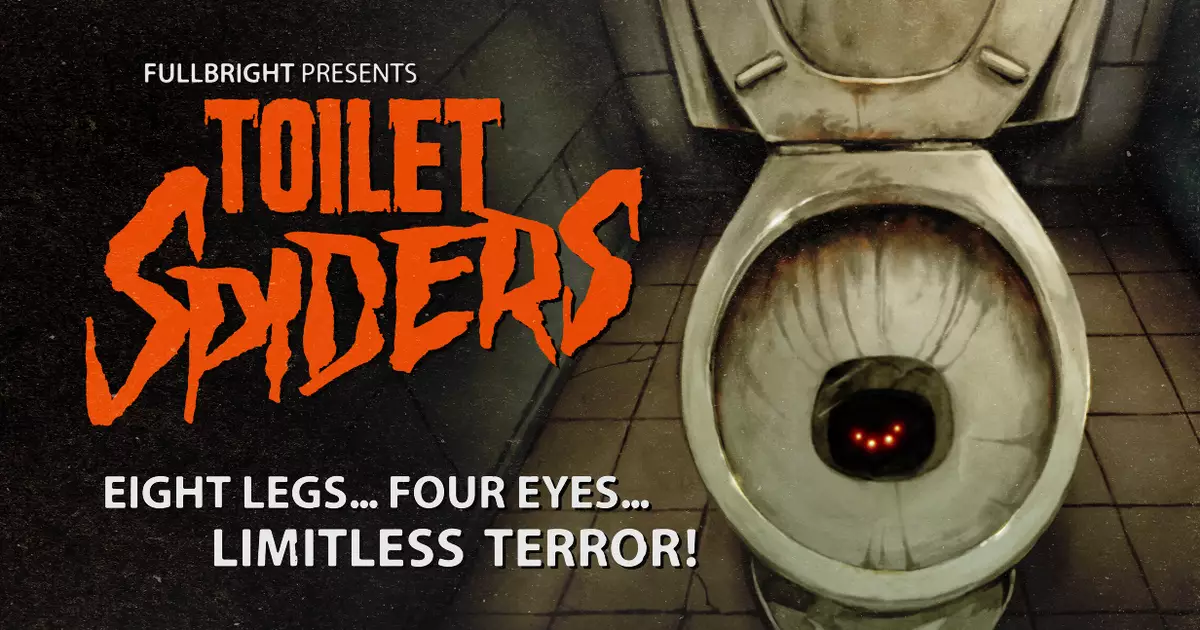Fullbright, a name synonymous with narrative-driven gameplay, has undergone a dramatic transformation since its inception. Initially renowned for creating heartfelt experiences such as “Gone Home,” where players delved into a family’s troubled past, the studio has now introduced a game that embodies an entirely different emotional landscape. “Toilet Spiders,” the first installment in a new anthology labeled Fullbright Presents, merges the eerie thrills of survival horror with a surprisingly humorous premise. This article examines the shift in Fullbright’s thematic approach and the implications of this transition within the gaming community.
Gone Home invites players to stroll through corridors filled with nostalgia. The carefully curated environment captures the essence of teenage angst and family dynamics set against the backdrop of a thunderstorm. As players navigate this space, they uncover resonant stories of longing and loss that echo in the stillness around them. However, the calm of “Gone Home” contrasts sharply with the grotesque overtones of “Toilet Spiders.” The jarring imagery of radioactive spiders lurking in toilet bowls transforms a place of personal solace into one rife with terror.
Despite its unsettling premise, “Toilet Spiders” deftly retains the intricacy of resource management. Players must gather items —from light bulbs to grenades— as they traverse the game’s layers of dread. Each tool serves not just to survive, but to navigate a complex ethical landscape where judgment of odds becomes critical. The shift from a narrative of heartfelt exploration to one of survival horror raises questions about the evolution of player experience and emotional engagement.
The game’s structure is indicative of a broader trend within the video game industry, where lo-fi games have grown in popularity, often distinguished by their minimalist aesthetics and narrative-driven gameplay. With “Toilet Spiders,” Fullbright initiates a departure from its previous lyrical storytelling style towards a more visceral experience that commands players to confront their fears directly. Here, the haunting presence of giant spiders becomes emblematic of a deeper sense of dread; players are not simply escaping from monsters but are instead grappling with their own anxieties and uncertainties.
This shift prompts a dialogue around horror’s portrayal in modern gaming. While previous Fullbright titles hinted at horror through psychological themes—like in “Tacoma,” where ghostly holograms haunt an abandoned space station—”Toilet Spiders” wields horror unambiguously. It evokes the terror of the mundane by placing feared creatures in commonplace settings, allowing players to contemplate their unease in familiar environments. Could this shift indicate a desire to explore new emotional landscapes in video gaming, by invoking laughter amidst fear?
However, the context of Fullbright’s journey merits exploration. The studio’s troubles began in 2021 following serious allegations against co-founder Steve Gaynor regarding workplace toxicity. His departure and the drastic reduction in team size left fans speculating about the future of the studio. “Toilet Spiders,” in many ways, stands as a reflection of these internal struggles. The game’s absurd premise, married to the remnants of Gaynor’s legacy, could be examined through the lens of corporate and personal accountability in the creative process.
The monstrous arachnids may symbolize hidden dangers lurking within systems, reflecting a broader commentary on how environments —be they familial or professional— can conceal unsettling truths. As players are tasked with navigating these difficult spaces, they may find that the real horror exists in the failure to confront the chaos that can arise in the heart of what seems familiar.
Ultimately, “Toilet Spiders” marks a significant departure from Fullbright’s previous work, evoking laughter and horror in equal measure. The game challenges conventions of storytelling in video games, prompting both reflection and engagement from its audience. While the underlying themes may hint at deeper conflicts within the studio, the game remains an intriguing exploration of fear in its most absurd forms. As Fullbright charts its course into uncharted territory, we are left to ponder whether their approach will ultimately bridge the gap between playful storytelling and exposure to darker realities.


Leave a Reply